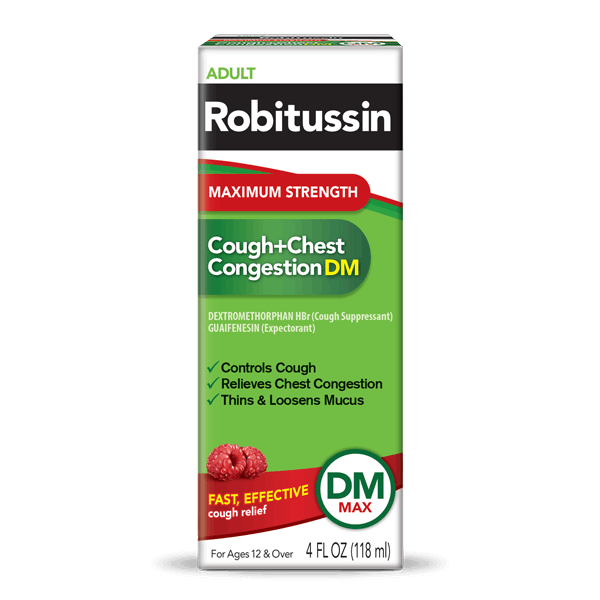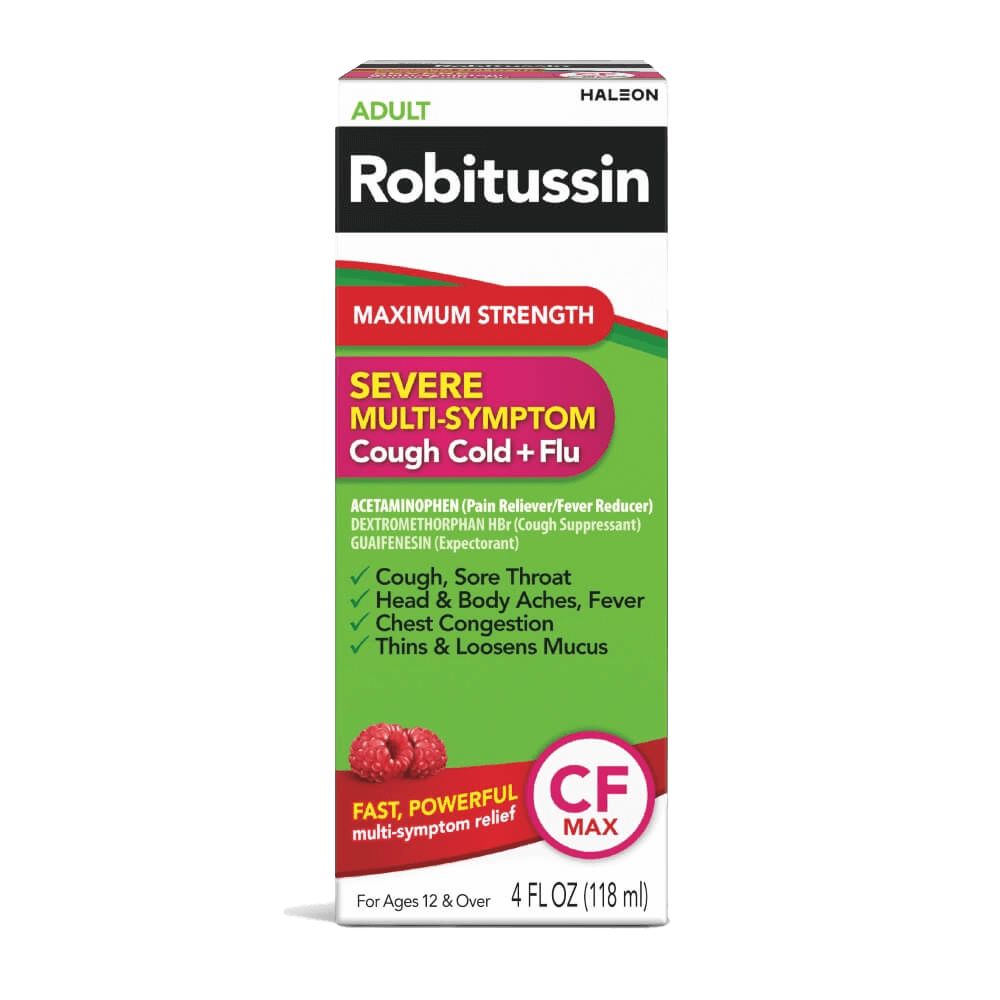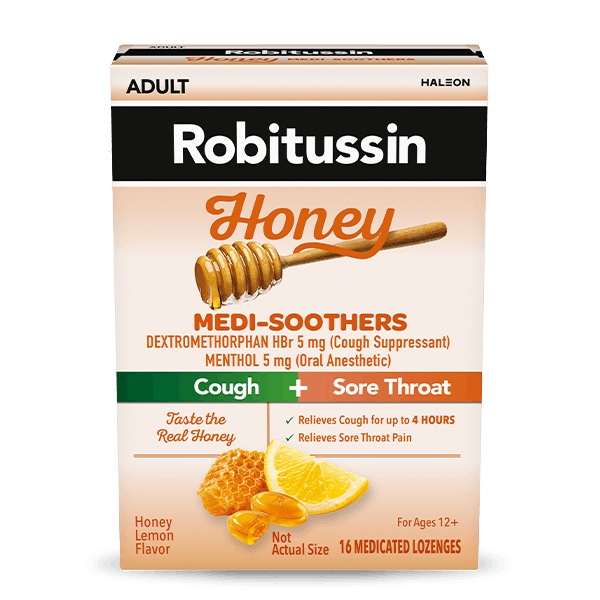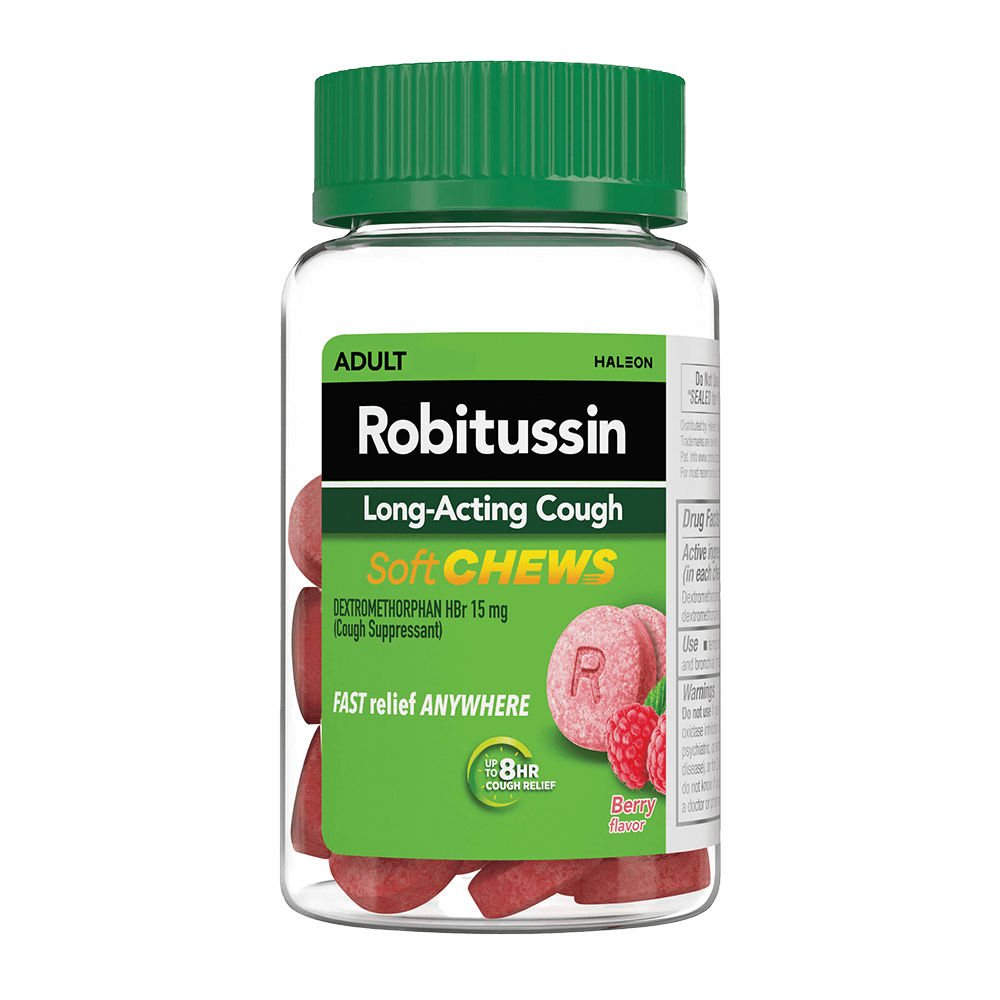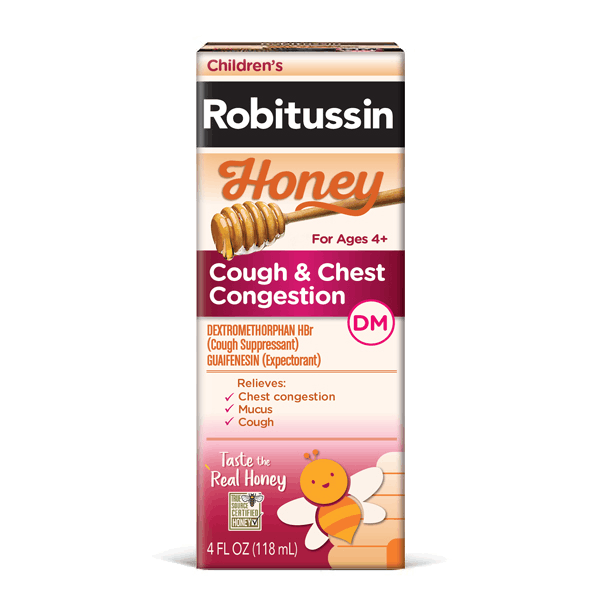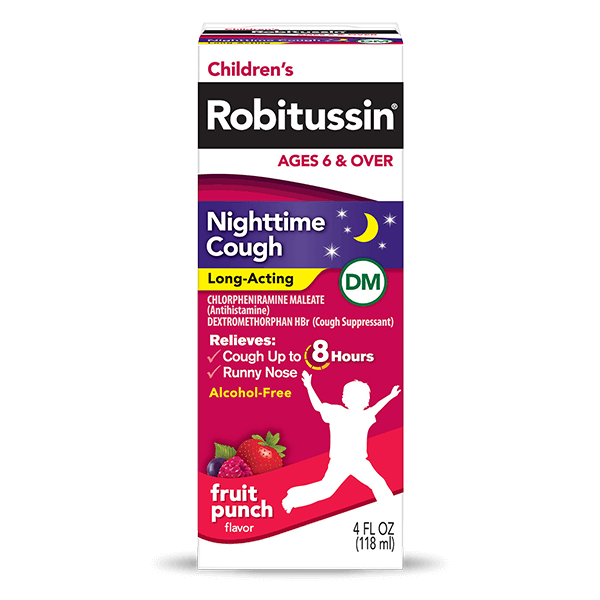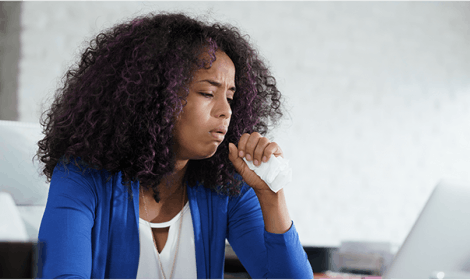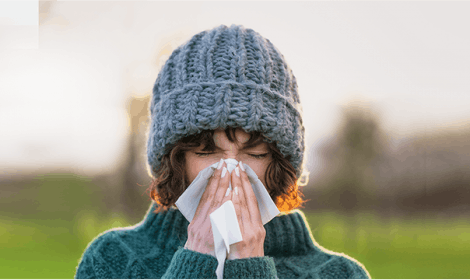How to Keep Your Cough to Yourself While Traveling
Traveling can be a joyous experience, but no matter where in the world you’re going, it’s possible that you can pick up a bug or a minor illness. When you’re in close quarters at a crowded train station, squeezing into an airplane aisle or touching high-contact surfaces like ticket machines, you run an even greater risk of developing a cough as a symptom of these illnesses.
While it is strongly recommended to stay home when sick, it is understood that sometimes going out in public is unavoidable. If it becomes necessary to be in public while unwell, here are some tips help relieve your cough and to help stop the spread of germs and keep others healthy:

What Is a Cough?
Coughing, a natural reflex, is your body’s way of protecting itself from things that irritate your throat or airways.1 When you cough, your body is pushing air out of your lungs via your chest and abdomen muscles, hopefully pushing out any irritants, foreign particles and bugs in the process.1 A cough begins with inhalation, then a forceful exhale that pushes against your closed vocal cords. When these vocal cords open, air is released.2
An occasional cough is normal and healthy. However, coughing fits can be very forceful and vigorous and prolonged coughing can irritate the lungs further, causing you to cough even more.1
How Fast Can a Cough Travel?
A cough is a sudden act, bursting through the lungs with force.3 Therefore, the foreign particles that are expelled from a cough can travel far and wide. A single cough can produce and expel approximately 3,000 droplets.3 In addition, these droplets can travel as fast as 50 mph, which increases their range and velocity to affect even more people around you.2
In addition, a sneeze is even more sudden than a cough, and it can travel twice as fast while expelling up to 100,000 droplets.2 This is why it’s important to protect your cough or sneeze by covering your mouth with the bend of your arm, instead of your hands.2
Ways to Protect Your Cough from Others
When you’re on the road, it’s important to avoid disturbing others with your cough. Try these tips to keep your cough to yourself while in public or traveling:
- Cover your mouth with your sleeve: Instead of coughing into your hands, which might then come into contact with people or surfaces, cough or sneeze into the sleeve of your arm.4 Avoid touching your mouth and eyes with unclean hands.4
- Wash your hands: Minimize your chances of catching a bug, cold or flu by washing your hands with soap and water, or use a hand sanitizer containing at least 60% alcohol.4
- Get rest: If you do fall ill, stay in your accommodations (unless you need to go to the hospital) and avoid people who might get you sick.4
- Stay hydrated: If you have a dry cough after traveling, you might be coughing without expelling any mucus or phlegm.5 This is usually the lingering sign of inflammation from a respiratory infection such as a cold or flu. Be sure to drink plenty of water or hot tea.5
- Take cough medicine: When you’re on the go, a convenient and portable cough solution like Robitussin Soft Chews can provide long-lasting relief—up to 8 hours.
Coughing while traveling can feel annoying, both to yourself and to others, but there are many effective ways to find relief. Visit the Cough and Cold Center for more content on cold and flu symptom relief.
Sources:
- Cough. Mayo Clinic. https://www.mayoclinic.org/symptoms/cough/basics/definition/sym-20050846/. Accessed 7/22/2024.
- How Fast Is a Sneeze Versus a Cough? Cover Your Mouth Either Way! American Lung Association. https://www.lung.org/blog/sneeze-versus-cough/. Accessed 7/22/2024.
- Coughs and Sneezes: Their Role in Transmission of Respiratory Viral Infections, Including SARS-CoV-2. National Library of Medicine. https://www.ncbi.nlm.nih.gov/pmc/articles/PMC7462404/. Accessed 7/22/2024.
- During Travel. Centers for Disease Control and Prevention. https://wwwnc.cdc.gov/travel/page/health-during-trip/. Accessed 7/22/2024.
- Dry Cough and Chest Tightness. Cleveland Clinic. https://my.clevelandclinic.org/health/symptoms/21888-dry-cough-and-chest-tightness/. Accessed 7/22/2024.
